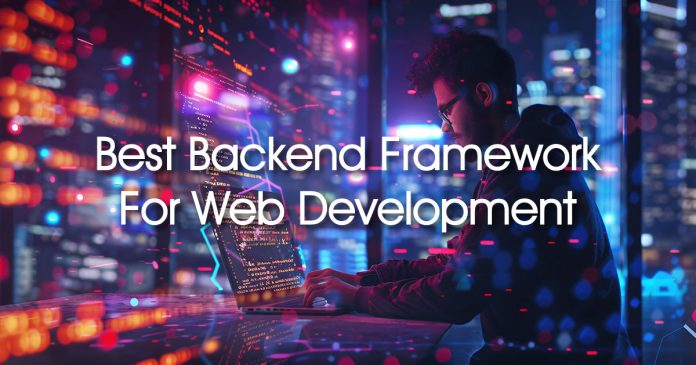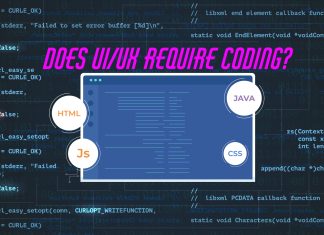Backend development involves server-side tasks such as accessing and manipulating databases, processing user input, controlling application logic, and communicating with APIs. There are many excellent backend frameworks available, but choosing the right one can be more challenging compared to frontend frameworks.
In frontend development, mastering JavaScript allows you to easily work with frameworks like React, Vue, and Angular. However, backend development often requires knowledge of different programming languages and their frameworks, such as Python, C#, PHP, and others. Therefore, it’s crucial to select the best backend framework for your project’s needs.
In this discussion, we will cover how to choose the perfect framework for your project and which backend framework you should learn to stay future-proof. Let’s dive into the topic!
Best Backend Framework for Web development
In the world of backend frameworks, there are many powerful options, each with its own strengths and popularity. The most popular and widely considered the best frameworks for backend web development are:
- Express JS, (JavaScript framework)
- Django (Python framework)
- Laravel (PHP framework)
- Spring Boot (Java framework)
- Ruby on Rails (Ruby framework)
Express.js stands out for its lightweight nature and beginner-friendly approach. With it, creating RESTful APIs, SPAs, and real-time applications becomes remarkably straightforward. Its simplicity makes it an ideal choice for those starting out or prioritizing agility. Additionally, Express.js is often considered one of the best backend frameworks for small single-page applications due to its flexibility and minimalistic design, which perfectly caters to the needs of SPAs.
Django excels in building robust content management systems (CMS) like WordPress, as well as scalable and data-driven applications. Its rich feature set and emphasis on rapid development make it a top contender in these domains. Moreover, Django is often considered fast due to Python’s nature. It offers built-in features for handling large applications and is known for having a robust security model, with built-in tools and clear practices for protecting against common web vulnerabilities such as CSRF and SQL injection.
Laravel is known for its elegant syntax and comprehensive toolkit, making it a favorite for building modern, maintainable PHP applications. It shines in e-commerce platforms, social networking sites, and content management systems due to its built-in features that simplify tasks such as routing, authentication, and caching.
Spring Boot simplifies the development of production-ready applications with its convention-over-configuration approach. It’s highly favored for enterprise-level applications, large-scale microservices, and complex web services due to its powerful ecosystem, scalability, and robust security features.
Ruby on Rails excels in the realm of minimum viable products (MVPs), allowing developers to swiftly prototype and iterate. Its strong emphasis on developer productivity and built-in testing framework makes it a preferred choice for startups and projects with tight timelines.
While frameworks such as Django, Laravel, Ruby on Rails, or Spring Boot are capable of creating RESTful APIs or single-page applications, Express.js stands out in these areas for its lightweight and beginner-friendly nature. Each framework can handle projects like creating CMS, e-commerce websites, or data-driven applications, but certain frameworks excel due to their built-in features tailored for specific tasks. Ultimately, there isn’t a single best backend framework for web development the best choice depends on your specific needs. It’s crucial to understand how to find the perfect framework for your project and what factors to consider when choosing one. So let’s explore how to find the perfect framework for your project.
How to Choose a Backend Framework for a Project?
Selecting the appropriate backend framework is crucial for the project’s success. Start by analyzing your project requirements and considering its complexity. Your choice of backend framework should also consider factors like your team’s proficiency in programming languages, website traffic, and scalability requirements. It’s better to explore each framework’s strengths and resources like tutorials and quick start guides. As it allows you to experiment with shortlisted options to understand their syntax and development style better.
If you are a beginner and want to create simple apps, like chat apps or real-time analytics, Express.js, a lightweight framework built on Node.js, is a great choice. It excels in handling real-time applications due to its event-driven, non-blocking I/O model, allowing for quick development. It seamlessly integrates with front-end frameworks like React, Angular, or Vue.js, enabling the creation of RESTful APIs for serving dynamic content to single-page applications (SPAs). One of the advantages of using Express.js over more complex frameworks like Django or Laravel is its middleware and simple structure, which makes it easier to manage and customize. Additionally, error handling in Express.js is straightforward, providing a clear and efficient way to manage errors and debug applications.
For small e-commerce websites, both Django and Laravel shine with features like an admin panel, authentication, and ORM, accelerating development. Their strong security features are crucial for handling payments and sensitive user data, making them contenders for the Best Backend Frameworks for E-commerce.
Laravel includes tools such as Eloquent ORM for database management and Blade templating engine for creating dynamic web pages. Its built-in Artisan CLI streamlines common development tasks, and it seamlessly integrates with front-end frameworks like Vue.js, React, and Angular, making it an excellent choice for interactive user interfaces.
Django provides a robust admin interface out of the box, making it easy to manage site content and users. Django ORM simplifies database interactions, and its templating engine helps build dynamic web pages. The Django ecosystem offers reusable apps for common functionalities, such as Django Oscar and Saleor for e-commerce, which can speed up development. Django’s emphasis on security, with features like CSRF and XSS protection, ensures your site is safe from common vulnerabilities. Also, Django’s modularity supports easy scaling as needed.
Both frameworks are well-suited for small e-commerce projects, with the best choice depending on your team’s familiarity with Python or PHP and the specific needs of your project. Ultimately, when considering the Best Backend Frameworks for small E-commerce, Django and Laravel are top options due to their robust features and security.
Conversely, for large e-commerce platforms, Spring Boot is highly scalable and suitable for enterprise-level applications. It offers robust security features and supports microservices architecture, facilitating the development of a large, maintainable, and scalable e-commerce platform.
For data-driven applications and complex tasks, ASP.NET Core is a perfect choice. It provides strong typing, robust error handling, and seamless integration with the .NET ecosystem, which is advantageous for complex data processing and analysis.
Ultimately, selecting a framework depends on various factors such as application type, scalability requirements, programming language proficiency, community support, and framework strength.
In conclusion, the backend frameworks discussed are among the best options available. When choosing the Best Backend Framework for Web Development, you should explore each one and select the most suitable for your needs. If you are already proficient in JavaScript, Express.js is an excellent choice as it is built on Node.js, a JavaScript runtime, allowing you to leverage your existing JavaScript skills for backend development.
For those comfortable with Python, Django is a preferred option due to its robust and comprehensive nature. Additionally, Laravel (PHP) and Spring Boot (Java) are highly sought after in the industry, making them excellent choices to future-proof your career. However, it is crucial to evaluate whether a framework aligns with your specific requirements. Conduct thorough research and compare frameworks based on several criteria, including documentation quality, available libraries, and community support.
Consider developing a small prototype to assess the framework’s suitability for your project. While each framework is capable of building a wide range of applications, it is vital to determine which one offers the most effective results based on its intrinsic features and capabilities. If you found this blog helpful, make sure to read Best JavaScript Framework for Frontend as well.



